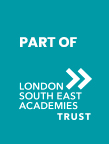Reading
OUR COMMITMENT
At Endeavour, we know that being fluent in and understanding the English Language is essential. Reading, along with writing and oracy, is a key life skill - essential not only for accessing learning but for building independence and confidence in the wider world. We aim to equip all learners with the skills they need to access the written word and succeed in school and beyond.
Assessment & Targeted Support
Initial and Ongoing Assessment
All learners’ reading is assessed on entry. This provides us with nationally standardised data which we use to identify those learners who are not yet reading with accuracy and fluency expected within their age group so that targeted support can be put in place for them to develop these skills.
Reading in the Curriculum
Disciplinary Literacy
All teachers develop learners’ spoken language, reading, writing and vocabulary as integral aspects of the teaching in their subject . We embed opportunities to develop and practice reading throughout teaching, learning and curriculum plans.
Teachers understand that reading is subject disciplinary and they explicitly teach reading skills and strategies. They carefully select texts and activities for learners according to their reading capabilities.
Subject teachers ensure that direct vocabulary instruction is part of normal pedagogical practice and focus on developing Tier 2 (generic academic) as well as tier 3 (subject specific)
Where learners have difficulties accessing written due to conditions such as Dyslexia, teachers may use audio books and podcasts and reading aloud to support their vocabulary development.
Wider Reading Essentials
Endeavour Academy devotes curriculum time for wider reading. Learners have dedicated reading opportunities in tutor time (e.g., reading the news, weekly quizzes) and opportunities to discuss, share and recommend what they are reading. Each class has timetabled access to the welcoming and well stocked Library where a variety of fiction and non-fiction is available.
We encourage learners to notice when they are using real-life reading experiences - such as interpreting signs, recipes, emails, or instructions - as part of developing functional literacy and developing an understanding of the importance of being able to read fluently.
Literacy Intervention
In Class Support
All staff including Teaching Assistants understand the processes by which children learn to read and write and are aware of both decoding and comprehension difficulties and how best to support learners who struggle with these skills within the classroom.
Targeted Support
For those learners who are significantly behind their peers by 3+ years the school employs specialist staff who have in-depth knowledge in the principles, theory and teaching of systematic synthetic phonics.
A Tiered Approach
A mixture of 1:1 and small group interventions such as Precision Teach or Toe by Toe are delivered by our skilled staff, as well as computer-based schemes such as Lexia.
Functional Skills
At KS4 we take a pragmatic approach to ensuring that our struggling learners leave us with qualifications which show that they have the practical reading, writing, and numeracy abilities needed to manage daily life, work effectively, and participate in society. These skills go beyond basic reading to include interpreting instructions, filling out forms, using technology, and managing finances.
Assistive Technology
Some students such as those with severe Dyslexia will always find reading and writing difficult so we equip them with the digital skills to use technology so that they can still fully participate in learning and employment. Text-to-speech, screen readers, digital highlighters, and audiobooks aid reading, while dictation software assists with writing.
Whole School Reading Culture
Library Access
Pupils have access to a range of reading materials suited to different interests and levels—from graphic novels to non-fiction. We continue to build our library stock in response to pupil preferences.
Reading Mentors
To support our younger or less confident readers, we run a Reading Mentor programme in the mornings. In this initiative, older learners are paired with younger peers to offer regular, supportive reading practice in a calm and encouraging environment. This not only helps develop fluency and confidence but fosters a sense of community and responsibility.
Reading Events
We take part in school-wide reading events such as World Book Day, which celebrate reading in fun and inclusive ways that meet learners where they are.
Staff Development
Ongoing Support
Staff receive guidance and regular updated training to support learners with reading across the curriculum. This includes learning techniques and strategies to scaffold texts, support vocabulary development, and build pupil confidence as well as encouraging and supporting the use of technology when required. Training is targeted to staff needs and classroom context as identified through the quality assurance process.
Further specialised training is provided for key members of staff such as Speech and Language Support Assistants (SALSAs), English HLTAs, etc.
Monitoring & Accountability
Quality Assurance
Endeavour uses a systematic process that evaluates and improves teaching methods to ensure they meet, or exceed, established standards and enhance student learning outcomes. Key mechanisms include lesson observations, student feedback, teacher self-evaluation, and evidence-based curriculum review. It aims to promote continuous improvement, consistency, and equity across our literacy provision.
Progress Monitoring
The impact of reading interventions is reviewed every half term by the SENCO with the Reading Team. This includes reassessing key data points (such as standardised score) and evaluating engagement, confidence in and mastery of new skills as well as deciding on new referrals, and next steps.
Our Vision
At Endeavour, we recognise that not all learners will leave school with a love of reading—but we do aim for every young person to leave feeling confident enough to read independently, engage with the world around them, and access future opportunities.
For some, this means being able to tackle exam questions or complete job applications. For others, it may mean confidently reading a bus timetable, following a recipe, or communicating with friends via text or email. We want reading to feel achievable and relevant - something our learners can trust in as a tool for learning and life.




